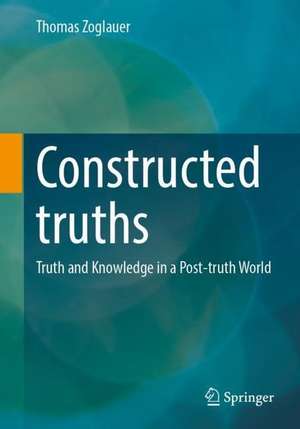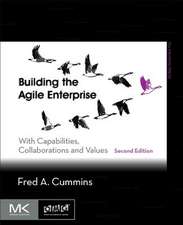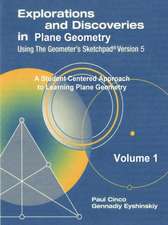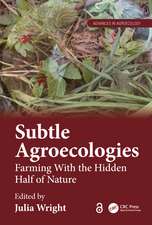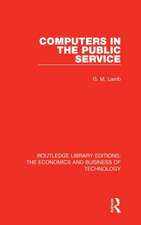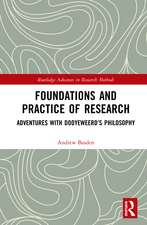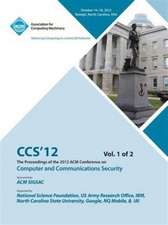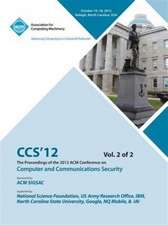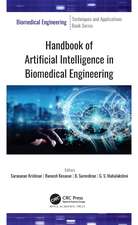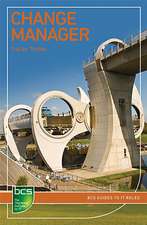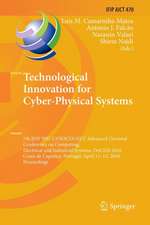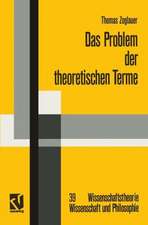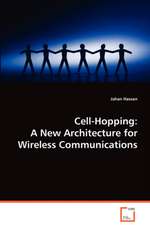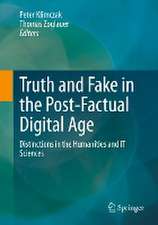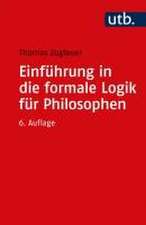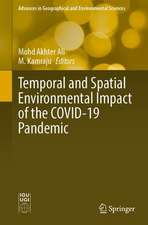Constructed Truths: Truth and Knowledge in a Post-truth World
Autor Thomas Zoglaueren Limba Engleză Paperback – 9 feb 2023
is everything socially constructed? This book explains how echo chambers and alternative worldviews emerge, it blames post-factual thinking for the current truth crisis, and it shows how we can escape the threat of truth relativism.
Preț: 303.43 lei
Preț vechi: 379.29 lei
-20% Nou
Puncte Express: 455
Preț estimativ în valută:
58.08€ • 63.11$ • 48.82£
58.08€ • 63.11$ • 48.82£
Carte disponibilă
Livrare economică 31 martie-14 aprilie
Livrare express 14-20 martie pentru 24.35 lei
Preluare comenzi: 021 569.72.76
Specificații
ISBN-13: 9783658399412
ISBN-10: 3658399414
Pagini: 149
Ilustrații: XIII, 149 p.
Dimensiuni: 168 x 240 x 13 mm
Greutate: 0.27 kg
Ediția:1st ed. 2023
Editura: Springer Fachmedien Wiesbaden
Colecția Springer Vieweg
Locul publicării:Wiesbaden, Germany
ISBN-10: 3658399414
Pagini: 149
Ilustrații: XIII, 149 p.
Dimensiuni: 168 x 240 x 13 mm
Greutate: 0.27 kg
Ediția:1st ed. 2023
Editura: Springer Fachmedien Wiesbaden
Colecția Springer Vieweg
Locul publicării:Wiesbaden, Germany
Cuprins
Filter bubbles and echo chambers.- Conspiracy theories.- Fake news.- Epistemology of the post-factual.- Theories of truth.- Information and knowledge.
Recenzii
“Why should anyone other than philosophers, sociologists, anthropologists, and psychologists read this book? It is because post-factualism and post-truth as operative modes of thought have emerged from the philosophy journals and gone into the wild--like a virus escaping from a laboratory. ... The objective is cash flow, period. If this is the only philosophy book you read this decade, it will be worth it.” (Anthony J. Duben, Computing Reviews, March 11, 2024)
“The book is not a heavy read, and Zoglauer’s writing style is easy to follow, even across the potentially very deep topics it presents. Its main readership is not necessarily computing practitioners or academics. … for people trying to better understand epistemology through its expressions in the modern world, it will be a very worthy read.” (Gunnar Wolf, Computing Reviews, March 6, 2024)
“The book is not a heavy read, and Zoglauer’s writing style is easy to follow, even across the potentially very deep topics it presents. Its main readership is not necessarily computing practitioners or academics. … for people trying to better understand epistemology through its expressions in the modern world, it will be a very worthy read.” (Gunnar Wolf, Computing Reviews, March 6, 2024)
Notă biografică
Thomas Zoglauer (Dr. phil. habil.) teaches philosophy at the Brandenburg University of Technology Cottbus-Senftenberg and at the Graduate Academy of the University of Stuttgart and is the author of numerous books on the philosophy of technology and applied ethics.
Textul de pe ultima copertă
In a world where more and more fake news is being spread, it is becoming increasingly difficult to distinguish truth from lies and knowledge from opinion. Disinformation campaigns are not only perceived as a political problem, but the fake news debate is also about fundamental philosophical questions: What is truth? How can we recognize it? Is there such a thing as objective facts or is everything socially constructed? This book explains how echo chambers and alternative worldviews emerge, blames post-factual thinking for the current truth crisis, and shows how we can escape the threat of truth relativism.
The contents:
- Fake news
- Post-truth epistemology
- Theories of truth
- Information and knowledge
The target groups:
- Philosophers
- Media scientists
- Political scientists
- Social scientists.
The author:
Thomas Zoglauer (Dr. phil. habil.) teaches philosophy at the Brandenburg University of Technology at Cottbus-Senftenberg and at the Graduate Academy of the University of Stuttgart and is the author of numerous books on the philosophy of technology and applied ethics.
This book is a translation of an original German edition. The translation was done with the help of artificial intelligence (machine translation by the service DeepL.com). A subsequent human revision was done primarily in terms of content, so that the book will read stylistically differently from a conventional translation.
The contents:
- Fake news
- Post-truth epistemology
- Theories of truth
- Information and knowledge
The target groups:
- Philosophers
- Media scientists
- Political scientists
- Social scientists.
The author:
Thomas Zoglauer (Dr. phil. habil.) teaches philosophy at the Brandenburg University of Technology at Cottbus-Senftenberg and at the Graduate Academy of the University of Stuttgart and is the author of numerous books on the philosophy of technology and applied ethics.
This book is a translation of an original German edition. The translation was done with the help of artificial intelligence (machine translation by the service DeepL.com). A subsequent human revision was done primarily in terms of content, so that the book will read stylistically differently from a conventional translation.
Caracteristici
Analyzes fake news and the "post-truth" phenomenon from a philosophy of technology Deals with a highly topical and widely discussed issue Answers questions: What is truth? How can we recognize it?
